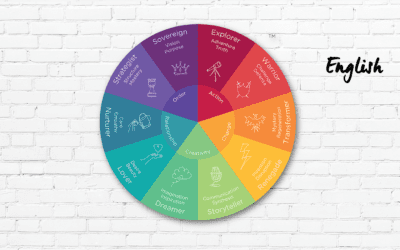Free Resources for Therapists
These resources are intended to help therapists learn and develop new skills. They integrate many CBT, DBT, jungian and existential techniques. They are free for private practice use with individual patients.
The Jungian Approach to Mythology
Mythological Dictionaries for Depth Psychology
Explore our comprehensive dictionaries of mythological systems through the lens of depth psychology:
Greek Mythology
The humanized gods with complex personalities and conflicts; emphasis on fate vs. free will.
Egyptian Mythology
Cyclical view of existence; complex afterlife journey; integration of opposing forces.
Norse Mythology
Stark worldview with emphasis on courage despite fate; confronting limitations with integrity.
Proto-Myths & Prehistoric Religion
Emergence of consciousness; relationship with nature; primal fears and animistic worldview.
Jungian Dream Dictionary
Explore the symbolic language of dreams through archetypes, animals, architecture, colors, and more
Explore the DictionaryThis is an outline for Myth-Spotting, a way to do Brainspotting from a Jungian framework.
This is a script for therapists to facilitate a mindfulness meditation for relaxation and anger.
A system mapping sheet for integrating dissociative identity disorder alters
A program for a social encounter group for young adults
A worksheet for mapping and understanding the parts of the personality.
A art and somatic therapy program for working with the shadow
Jungian growth and reflection worksheet.
Fast interventions for panic and dissociation
An exercise to be used for guided meditation or EMDR resourcing
A worksheet on emotion recognition, regulation, and deep emotional processing.
Personality sorter for Jungian archetypes.
This helps clients identify strengths, weaknesses and somatic responses.
Career counseling and life planning sheet for therapists
A script for exit interview, termination and assesment of clients.
A script for analysis of panic and phobia using tools from archetypal psychology
A transactional analysis exercise for communication
Somatic emotion recognition and recognition exercise
Recent Articles
Is My Friend or Business Partner a Con Artist?
Understanding the Psychology Behind Deception and Emotional Manipulation Have you ever wondered if your business partner is a con artist? Perhaps you've noticed a pattern where their stories don't quite add up, where their accomplishments seem to exist only in...
The Archetype’s in Brand Psychology: Building Authentic Identity Through Jung’s Timeless Wisdom
Discover how Jung’s Jester archetype and the 12 archetypal patterns transform brand identity, from therapy practices to Fortune 500 companies. Learn practical strategies for authentic archetypal branding that bridges ancient wisdom with modern neuroscience.
The Psychological Engineering of Liberty Park: How Calculated Control and Achievement Culture Built Alabama’s Most Ambitious Suburb
Liberty Park Alabama, Vestavia Hills, master-planned community, psychological engineering, achievement culture, HOA governance, The Bray development, suburban psychology, architectural control, public-private partnership, Vestavia Hills schools, controlled environments, suburban anxiety, corporate headquarters, community planning
The Psychological Architecture of Homewood: How Fear, Aspiration, and Autonomy Shaped an Alabama Suburb
An in-depth exploration of Homewood, Alabama’s psychological evolution from disease-driven suburban flight to modern struggles with excellence versus equity, examining how fear, aspiration, and fierce autonomy shaped this Birmingham suburb’s identity and ongoing challenges with diversity and inclusion.
Is My Friend or Business Partner a Con Artist?
Understanding the Psychology Behind Deception and Emotional Manipulation Have you ever wondered if your business partner is a con artist? Perhaps you've noticed a pattern where their stories don't quite add up, where their accomplishments seem to exist only in...
The Archetype’s in Brand Psychology: Building Authentic Identity Through Jung’s Timeless Wisdom
Discover how Jung’s Jester archetype and the 12 archetypal patterns transform brand identity, from therapy practices to Fortune 500 companies. Learn practical strategies for authentic archetypal branding that bridges ancient wisdom with modern neuroscience.
The Psychological Engineering of Liberty Park: How Calculated Control and Achievement Culture Built Alabama’s Most Ambitious Suburb
Liberty Park Alabama, Vestavia Hills, master-planned community, psychological engineering, achievement culture, HOA governance, The Bray development, suburban psychology, architectural control, public-private partnership, Vestavia Hills schools, controlled environments, suburban anxiety, corporate headquarters, community planning
The Psychological Architecture of Homewood: How Fear, Aspiration, and Autonomy Shaped an Alabama Suburb
An in-depth exploration of Homewood, Alabama’s psychological evolution from disease-driven suburban flight to modern struggles with excellence versus equity, examining how fear, aspiration, and fierce autonomy shaped this Birmingham suburb’s identity and ongoing challenges with diversity and inclusion.
The Psychological Engineering of Mountain Brook: How Policy Became Identity in Alabama’s Wealthiest Enclave
An in-depth psychological examination of Mountain Brook, Alabama—America’s most deliberately exclusive suburb—exploring how calculated planning, policy decisions, and social engineering created extraordinary wealth while generating a youth mental health crisis, environmental degradation, and regional inequality. A comprehensive analysis of the costs and contradictions of engineered perfection.
Our Practice

Taproot Therapy Collective
2025 Shady Crest Dr
Suite 203
Hoover, AL 35216
(205) 598-6471




